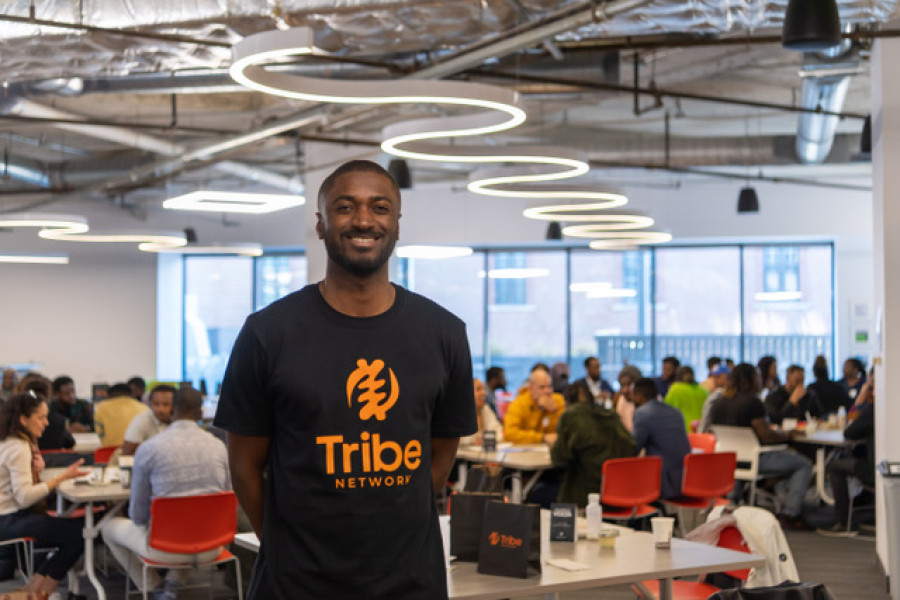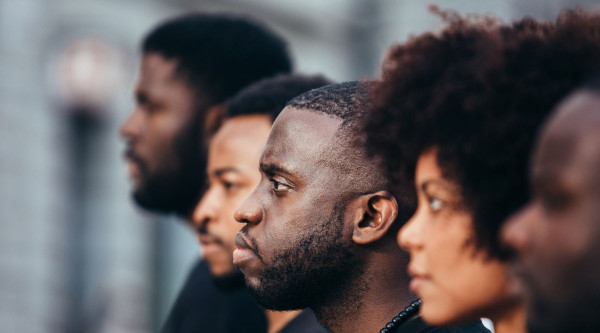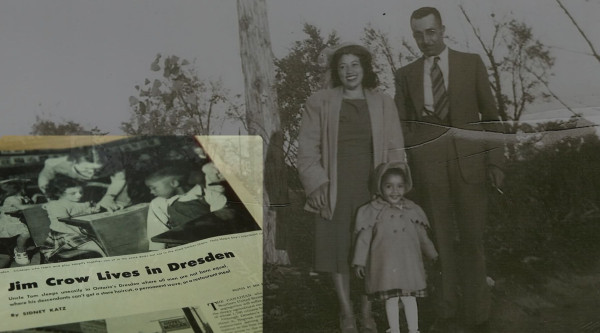Because of racism, Black settlers were pushed to live in unlivable conditions and could not grow agriculture. Despite this, Black people continued to live in Nova Scotia and grow communities such as Africville.
Africville was a primarily Black community located on the outskirts of Halifax. The first records of a Black presence in Africville date back to 1848. Over that time, hundreds of individuals and families lived there and built a thriving, close‐knit community. There were stores, a school, a post office and the Seaview United Baptist Church, which was Africville’s spiritual and social centre.
Unfortunately, discrimination and poverty presented many challenges for the community of Africville. The City of Halifax refused to provide sewage, access to clean water and garbage disposal to this community, unlike other Haligonians. Africville residents, who paid taxes and took pride in their homes, asked the City to provide these essential services numerous times, but no action was taken. Instead, the City compounded the problem by building many undesirable developments in and around Africville, including an infectious disease hospital, a prison and a dump.
In January 1964, Halifax City Council voted to authorize the relocation of Africville residents with no meaningful consultation with residents of Africville to gather their views. As a result, the last remaining Africville home was destroyed in January of 1970. In 2010, a settlement was reached, and the Mayor of Halifax made a public apology for the razing of Africville. Part of the settlement was used to rebuild Seaview Church, which now serves as the Africville Museum.
Halifax has come a long way since those times and now holds 20,795 Black people and is home of the headquarters for Tribe Network and its CEO Alfred Burgesson. Alfred was born in Ghana and his family immigrated to Canada when he was six years old. Before starting Tribe Network, Alfred ran a digital media company where he and “a group of young creatives helped local small businesses in Halifax adopt digital marketing and technologies. We produced work for retail stores, consultants and non-profit associations.” He also worked with the Assembly of First Nations and says he “learned about the disparities and generations of trauma inflicted on Indigenous peoples and communities.” Alfred also worked with the African Canadian Senate Group and the Office of Senator Colin Deacon as project lead on Inclusive Entrepreneurship: Exploring the barriers facing Black entrepreneurs. This allowed him to meet with like-minded Black entrepreneurs across the country and inquire about their experience running businesses in Canada.
Alfred faced barriers in the workplace through various experiences in the “entrepreneurship ecosystem.” He says, “These experiences influenced the reason I started Tribe Network. My time working with the Assembly of First Nations taught me that Black and Indigenous people face similar barriers. I realized through connection and solidarity, we could create new pathways and opportunities together.” He continues, “I want to have access to mentors and experts who can help each other grow their business. What if the members of this community could also build relationships with the existing resources and opportunities in the ecosystem? And how might we sell our services and products to each other in Canada and beyond?”
After thinking about these questions and speaking to several friends and advisors, Alfred has been building Tribe Network with the support of like-minded people across Canada since 2021. Alfred defines Tribe Network as “an ecosystem for Black, Indigenous and People of Colour to pursue entrepreneurship and innovation.”
Currently, Tribe Network is leading the Black Start-Up Project in Atlantic Canada. They provide Black entrepreneurs and innovators in Atlantic Canada access to resources and programming to start, build and accelerate their businesses. In addition, entrepreneurs in Atlantic Canada can get support by accessing a roster of mentors and experts-in-residence that provide support and guidance to entrepreneurs, joining education and training sessions on various topics, including leadership, sales, marketing, business development, finance and human resources. The introductions and connections fostered between founders and funders and utilizing the Black Founder Support Group: Burnout and Mental Health as a Black Entrepreneur (non-mandated Peer Lunches) program.
It was important to Alfred to assist Black, Indigenous and People of Colour in these areas, especially after learning that access to capital is one of the greatest barriers to Black entrepreneurs. Alfred shares that “75% of Black entrepreneurs say that if they needed to find $10,000 to support their business, it would be difficult for them to do so."
The community in Atlantic Canada has been responding well to Tribe Network. “Before we launched programming in April, our team went on the road to connect and build relationships with people and businesses in each province. We brought together Black entrepreneurs in Charlottetown, Moncton, Halifax, North Preston, New Glasgow, and Saint John’s.” You can learn more by reading From the Ground Up: Building the Black Start-Up Project & Connecting Black Entrepreneurs.” In August, Tribe Network launched its first program called START and supported “118 unique individuals and businesses with access to mentors, training and peer support.” Furthermore, last year Tribe Network was able to engage with over 300 Black entrepreneurs in the Maritimes.
Alfred shares that their biggest success is also one of their major challenges: “Building a Black-led start-up while helping others build their businesses too can be overwhelming. We have to walk before we can run; we are building a strong team and the internal processes to support our entrepreneurs. A lot can be said about teaching others to do what we’re doing in real-time.”
In the future, Alfred wants Tribe Network to grow. “I want it to expand across Canada and reach people so that we can take our businesses and ideas to all corners of the world. I want us to build a valuable ecosystem for racialized entrepreneurs. An ecosystem that is more connected, working and learning together.”
For more information on Africville, visit: https://humanrights.ca/story/story-africville
This story is part of our "Black History Month" series, where we celebrate the remarkable journeys and accomplishments of Black Canadians.

 By
By 








